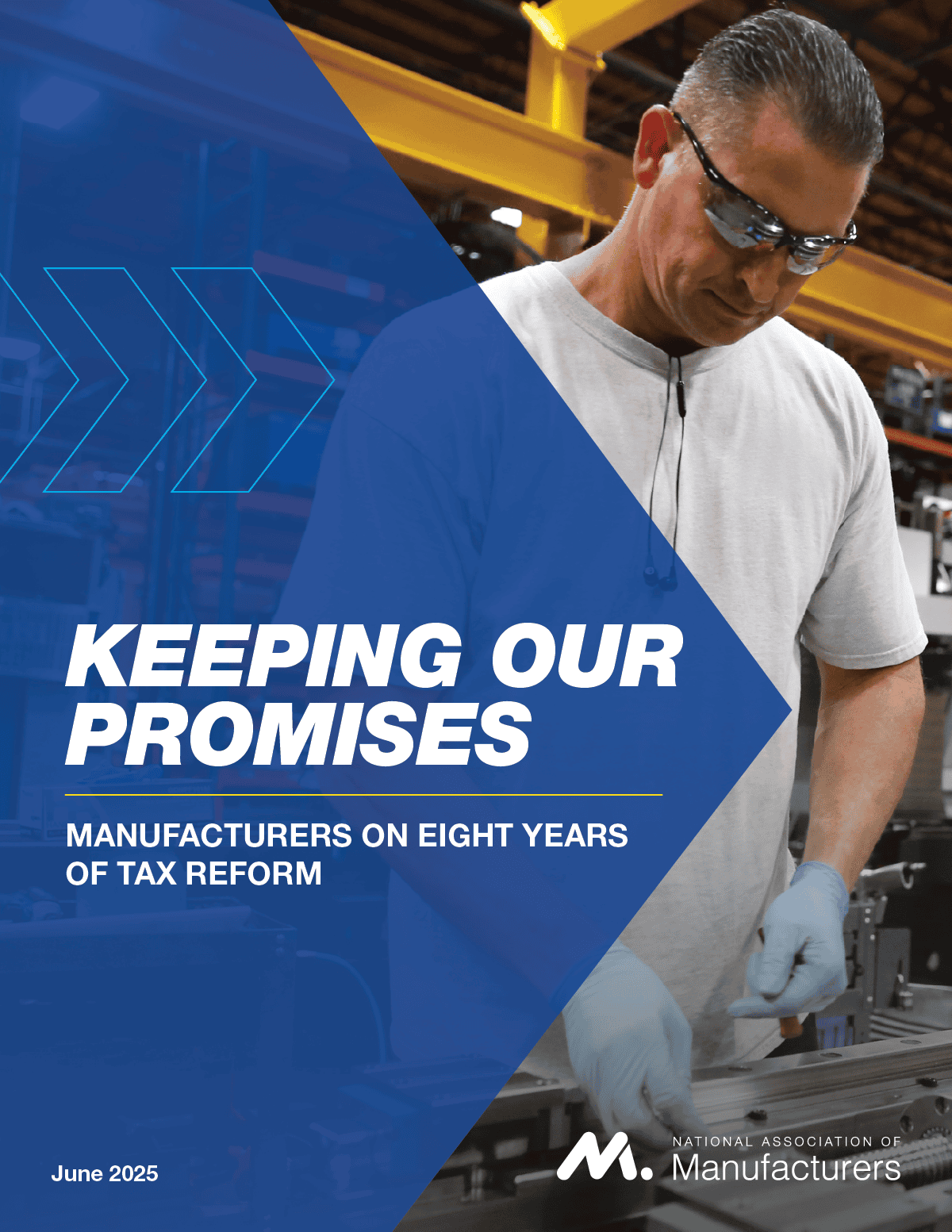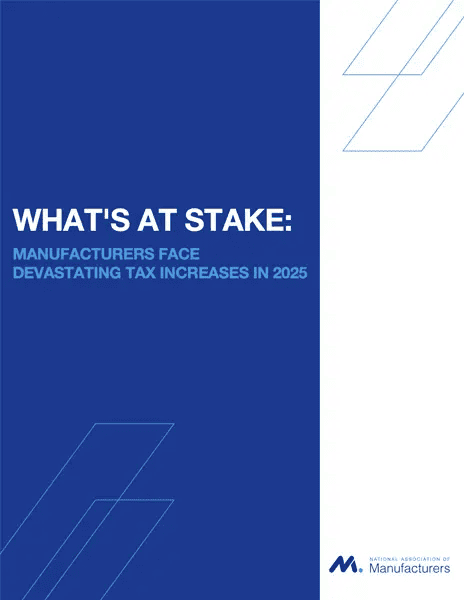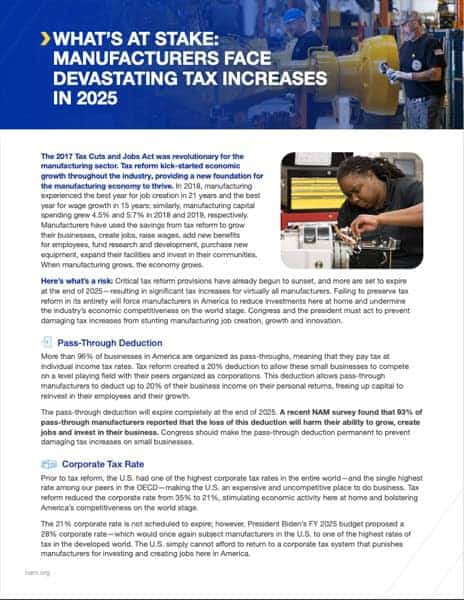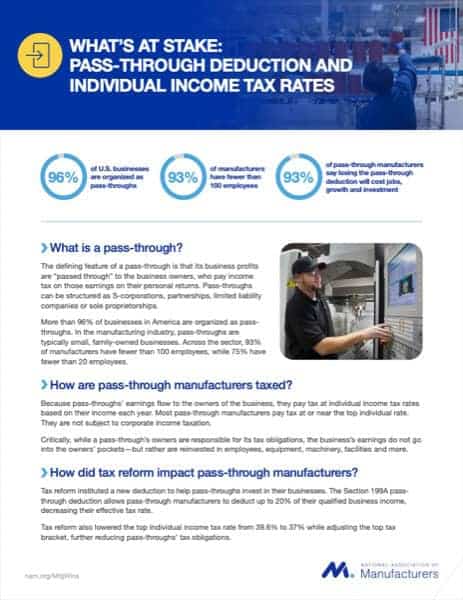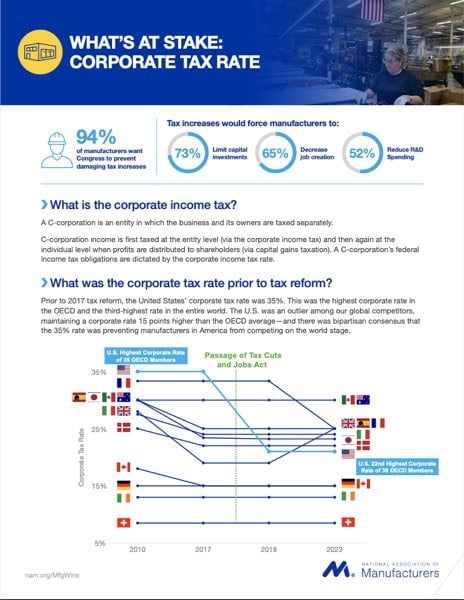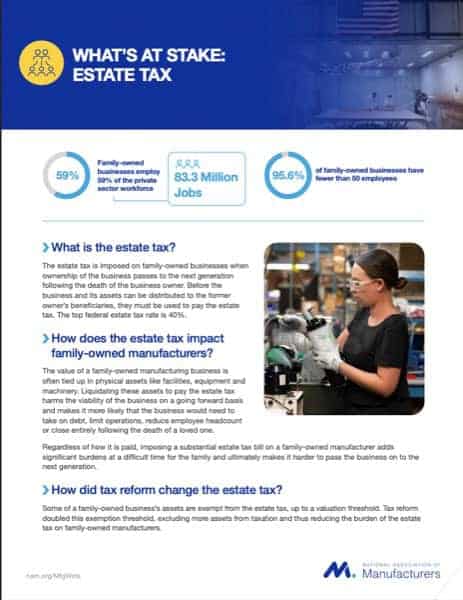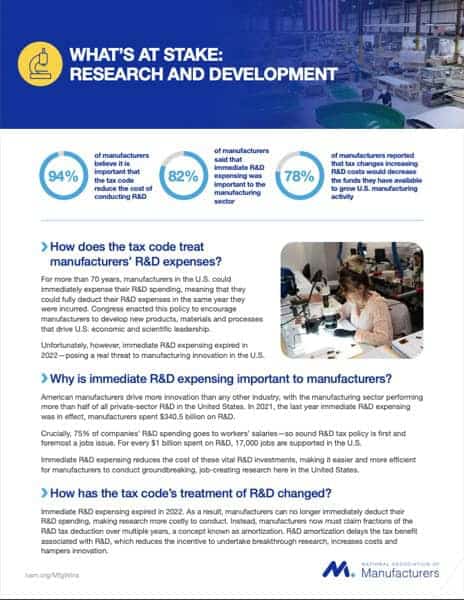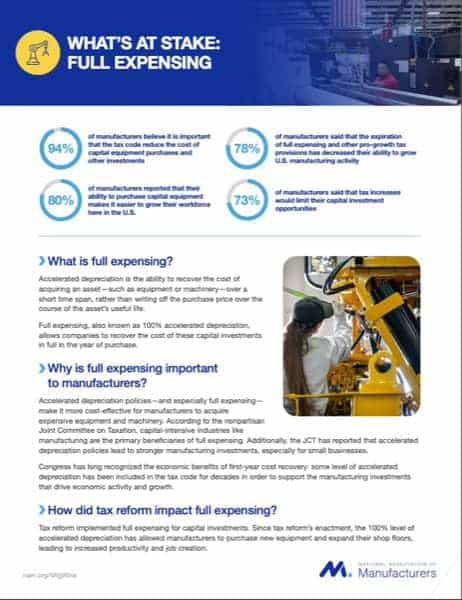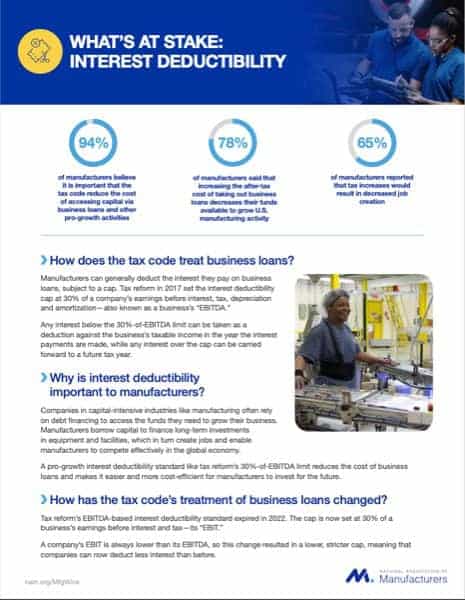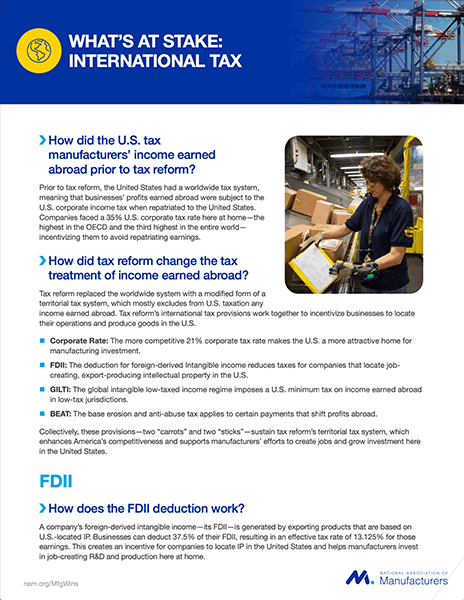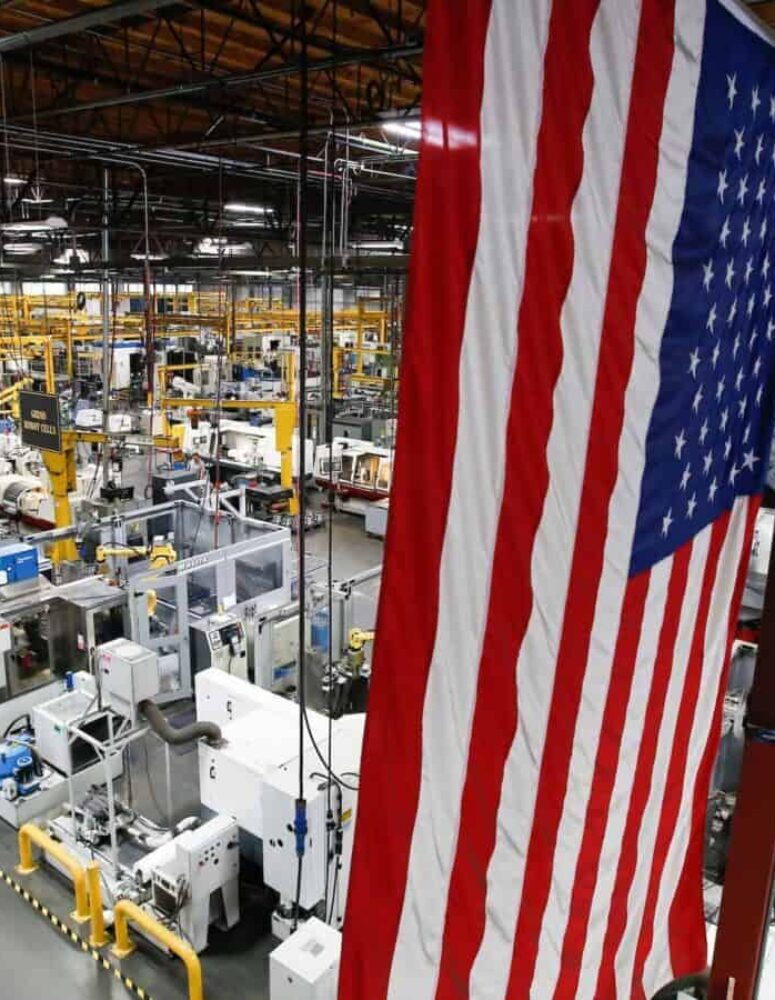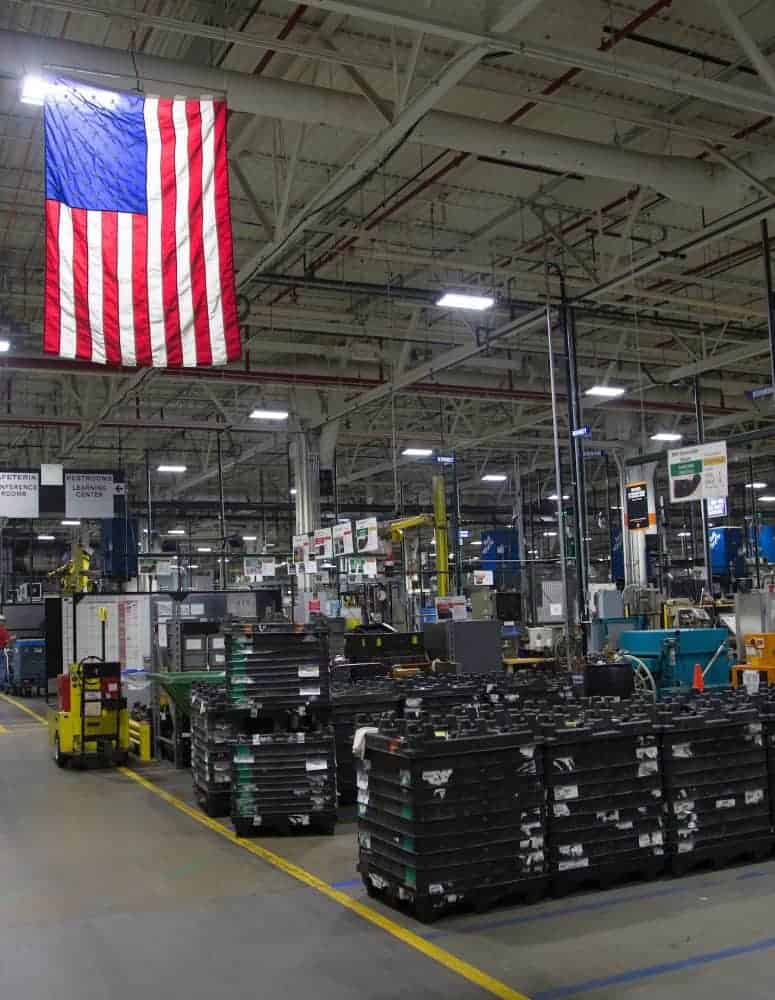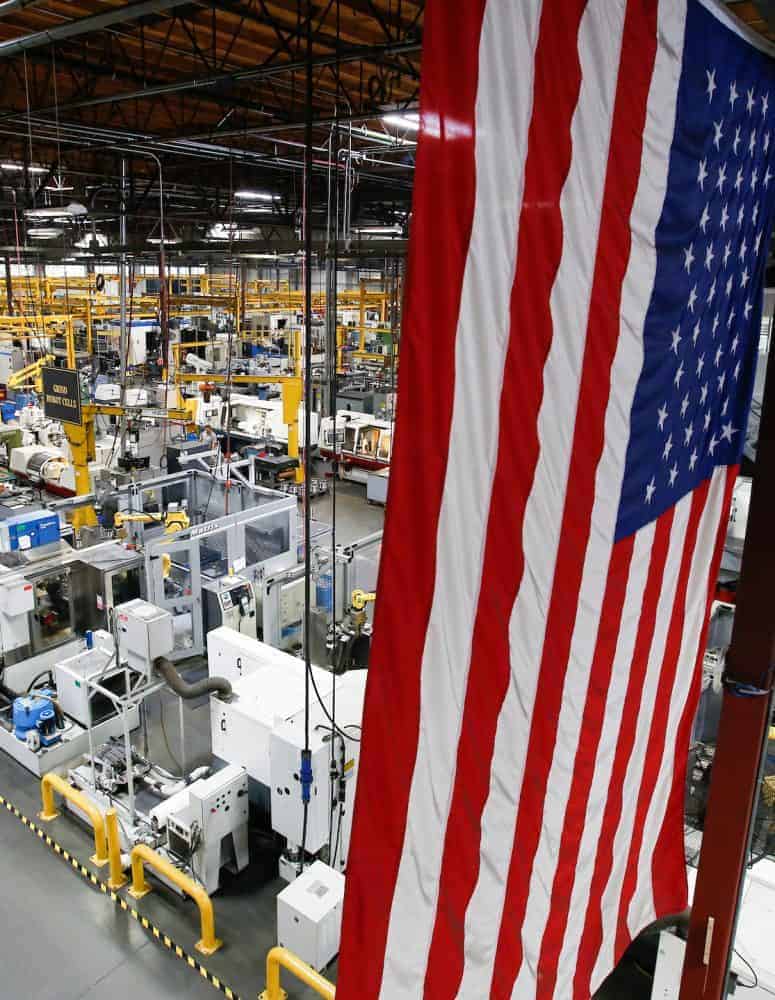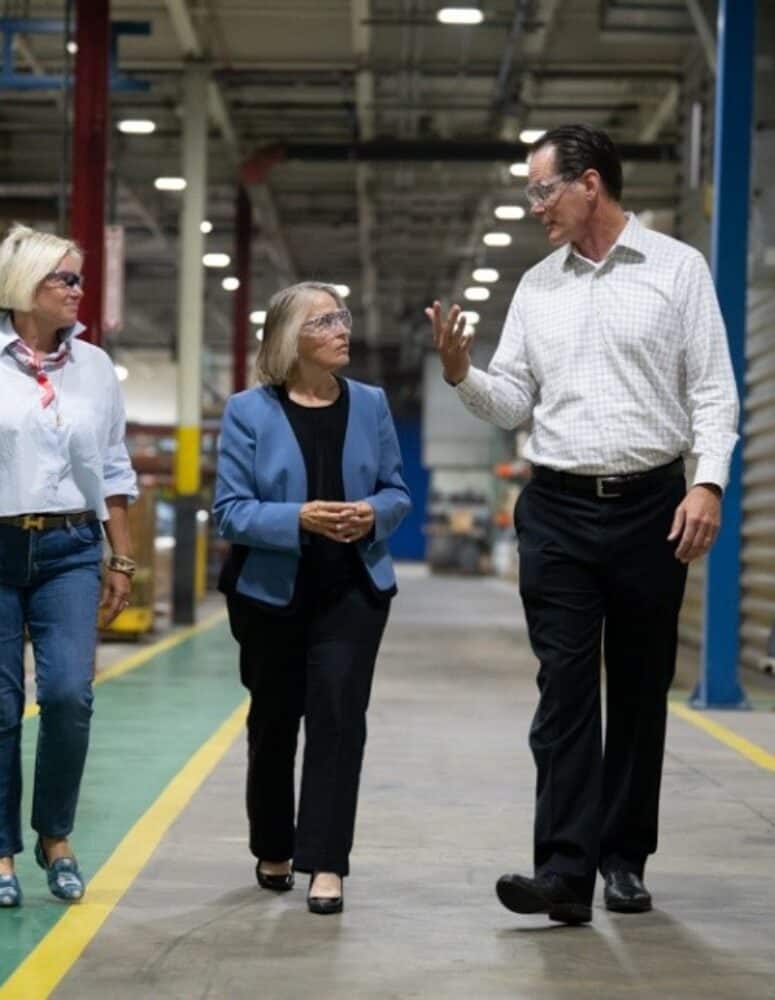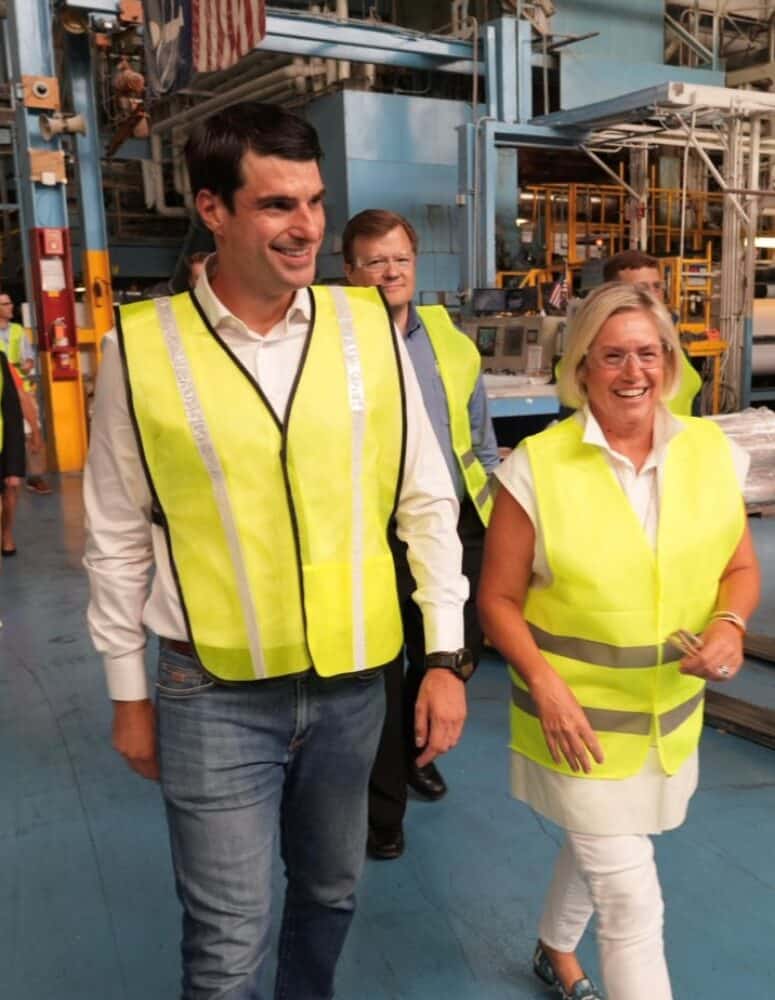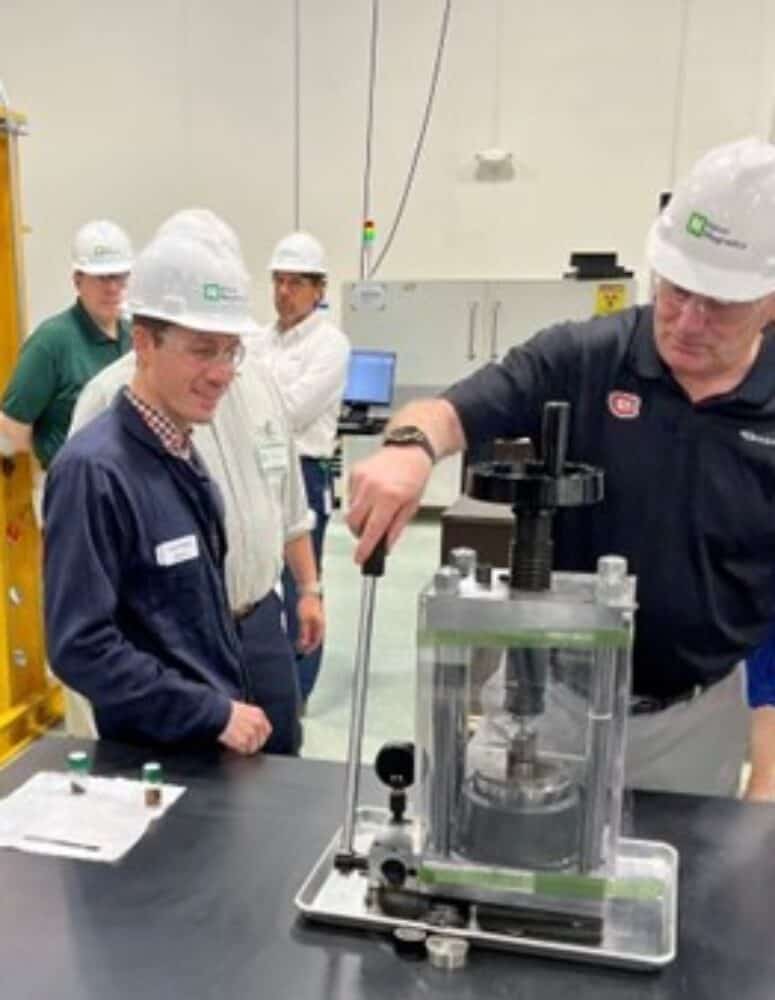Tax Increases Threaten American Jobs and Wages
If Congress fails to act by the end of 2025 to preserve tax reform, nearly 6 million American jobs will be lost.
Nationwide
Economic Damage
| 5.9 Million | LOST JOBS |
| $540 Billion | IN LOST WAGES |
| $1.1 Trillion | IN LOST GDP |
Impact on
Manufacturing
| 1.1 Million | LOST JOBS |
| $126 Billion | IN LOST WAGES |
| $284 Billion | IN LOST GDP |
Use our interactive map below to find out what’s at stake for your community.
Nationwide Impact
5.9M lost jobs
$540B lost wages
$1.089T lost economic output
Manufacturing Impact
1.1M lost jobs
$126B lost wages
$284B lost economic output
Keeping Our Promises: Manufacturers on Eight Years of Tax Reform
Manufacturers championed the Tax Cuts and Jobs Act of 2017, making clear to policymakers that a competitive U.S. tax code would empower the industry to invest, create jobs and grow the American economy.
In the nearly eight years since tax reform’s passage, manufacturers have kept their promises.
Recent Data
Prior to passage, 69% of manufacturers surveyed said they would have delayed purchasing capital equipment, while 45% would have held off on hiring, 45% would have stalled expansion of operations, 42% would have limited R&D investments and 40% would curb increases in employee wages or benefits.
Following passage of H.R. 1, 52% of manufacturers surveyed said they intend to utilize the new provision to immediately expense the cost of constructing or expanding a manufacturing facility over the next 4 years.
Key Policy Resources
Millions of American workers are depending on the manufacturing sector to continue driving America forward. Pro-growth tax policies from the 2017 tax reforms, which were rocket fuel for manufacturers, proved this by keeping the U.S. economy competitive on a global scale.
By preventing pro-growth tax policies from expiring in 2025, Congress will preserve a competitive tax system that spurs job growth across our communities, secures the U.S. as a global leader in innovation and reinforces America’s competitiveness on the world stage.
Below are critical policy recommendations crafted by the NAM that Congress and the president should act on to prevent damaging tax increases from stunting manufacturing job creation, growth and innovation.
Watch: Faces of Tax Reform
Watch: Congressional Testimony
Congressional Champions of Tax Reform
Click on the profiles below to read the full NAM interview.
